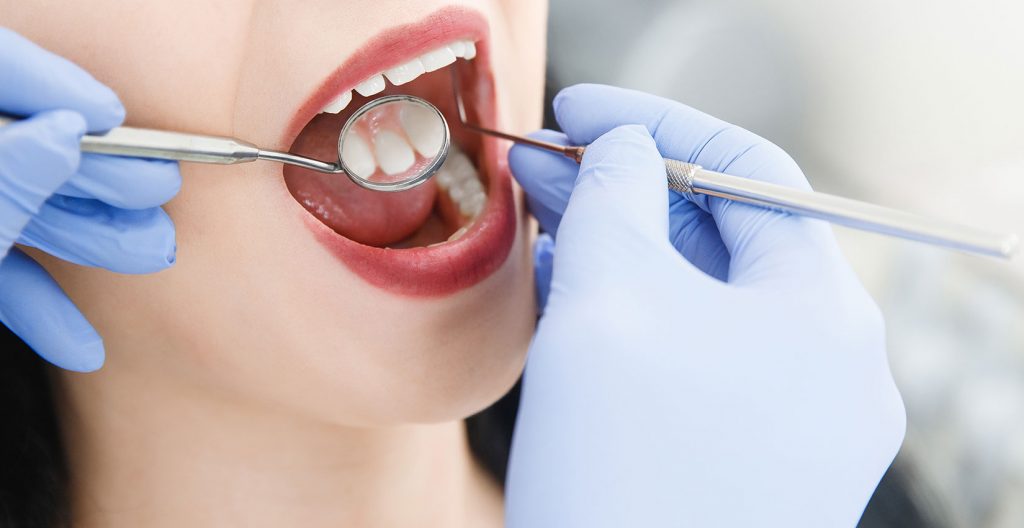It is important to see your dentist twice per year for routine check-ups and cleanings. But there are instances where your body may give you signs to tell you that you require a dental visit. Continue reading to learn of some common signs that you may need to visit the dentist.
Pain
Of course, one of the most tell-tale signs that you need a dentist visit is the presence of pain.
Recurring or lingering pain in your teeth or gums is an indication that something may be wrong, whether it be the development of a cavity, a chip or break in the tooth, or incoming impacted teeth.
A thorough examination can help your dentist determine exactly what the trouble is and how to treat it successfully. It’s best to see your dentist as soon as possible – even a simple cavity has the potential to worsen into serious decay that may require a root canal or even tooth extraction.
Bleeding and Swelling
Whether after brushing or flossing or randomly throughout the day, bleeding gums is never a good sign.
Swollen and bleeding gums can indicate gingivitis or its more advanced stage, periodontal (gum) disease. It is important to keep in mind that healthy gums do not bleed, so if you have noticed blood when brushing or even when eating, you must call your dentist and schedule an appointment right away.
Loose Teeth
While a loose tooth was cause for excitement and celebration as a child, a loose adult tooth can be extremely problematic.
In a healthy oral environment, the teeth remain held firmly in place by the jaw bone. When proper oral care is not practiced, harmful bacteria-laden plaque and tartar develop on the surface of the teeth.
If proper treatment is not administered, the bacteria will begin to eat away at both the tooth and bone structure, causing bone recession. Once the bone in the jaw has receded past a certain point, the tooth will become loose.
If professionally intervened on time, the complete loss of the tooth can be prevented, though the area will have to be under close observation with the help of a dentist and dental hygienist to ensure that the area remains bacteria-free and protected against decay and recession.
Gum Recession
Much like plaque and tartar can lead to the recession of bone structure, they can also cause the gums to recede as well. Once bacteria begin to develop beneath the gum line, a vicious cycle can start in which bacteria grows and festers subgingivally, causing even further damage.
Both gum and bone recession are characteristics of gum disease, which can be treated with regular deep cleanings known as scaling and root planings. Gum disease can not be reversed, but it can be maintained and prevented from worsening with regular treatment.
Spots on Teeth
Noticing a spot on your teeth – whether it be dark or light – can invoke some worries.
A dark spot on the surface of your teeth is usually an indication of some degree of decay. Even if you are not feeling any pain or sensitivity, it is crucial to alert your dentist as soon as possible; this will help increase your chances of restoring the tooth without the need for more invasive procedures (like a root canal).
White spots on the surface of the teeth can be a sign of demineralization, fluorosis (too much fluoride), or enamel hypoplasia. Your dentist can examine to determine the cause of the white spots and develop a treatment plan that will work for you.
Bad Breath
Bad breath is something that happens to everyone from time to time, but if you find that you have recurring or chronic bad breath, this may be a sign that you should visit your dentist.
Most bad breath is caused by bacteria in the mouth. In most cases, brushing and flossing twice daily – accompanied by rinsing with mouthwash – is sufficient for keeping bad breath at bay. Suppose you have noticed persistent unpleasant odors despite your best efforts to keep up with your oral hygiene. In that case, this could be an indication that you may have developed gingivitis or gum disease. It is also possible that the odor could be an indication of infection.
In order to find the cause of your bad breath and develop a treatment plan, it is best to schedule an appointment with your dentist right away.
Jaw Stiffness or Pain
Stiffness or pain in your jaw can be an indication of several different factors, such as bruxism, TMJ, impacted teeth, and more.
To find the cause of your pain or discomfort, your dentist will take x-rays and conduct an examination. A treatment plan will be designed to help alleviate your pain.
Toothache and Fever
If you have a recurring toothache that is often accompanied by a fever and an unpleasant taste in the mouth, this is usually a strong indication that there is an infection present in the mouth.
Even if the toothache or fever comes and goes, it is crucial that you see your dentist right away. An untreated infection has the potential to lead to a myriad of serious issues, including sepsis, an infection of the blood that can potentially be life-threatening.
Always alert your dentist right away if you have noticed signs of infection; he or she will start you on a course of antibiotics to clear the infection before treating the issue at hand.
Reza Dental Care: Best Dentist in South Gate, CA
Reza Dental Care is here to help you maintain a healthy and beautiful smile; we proudly provide comprehensive dental and orthodontic care in South Gate, California.
Are you searching for the “best dentist near me”? Our team of professionals is here for you. For more information about our friendly dentist in South Gate or to get scheduled for an appointment in our South Gate dental office, book an appointment online or give us a call at 323-457-8787.

 Available For Emergencies
Available For Emergencies